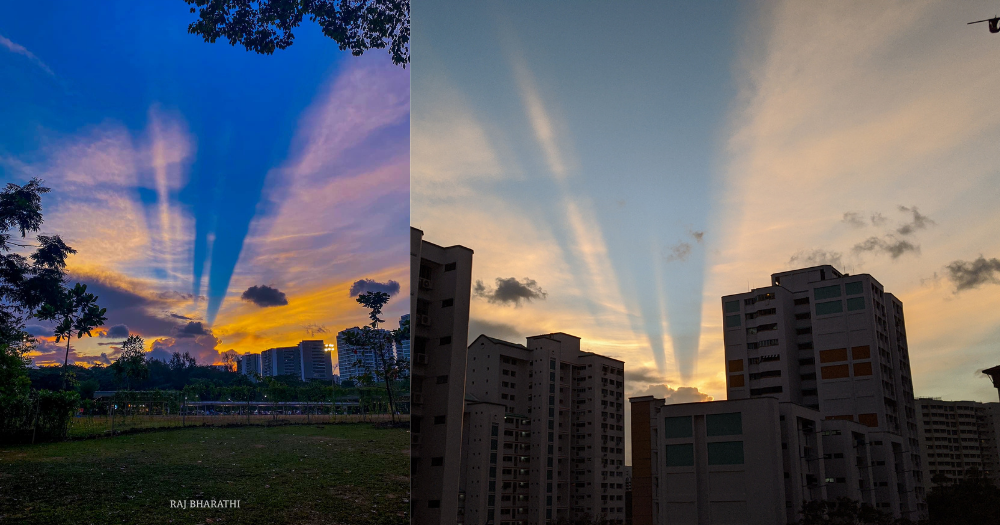If you managed to catch the sunset yesterday (Mar. 11), you might have noticed a distinct split in the sun rays in the evening.
Some residents in Singapore captured this rare sight.
Here's a stunning shot taken by Raj Bharathi during the golden hour, which he subsequently shared with local nature-loving community in the Nature Society Singapore's Facebook group.
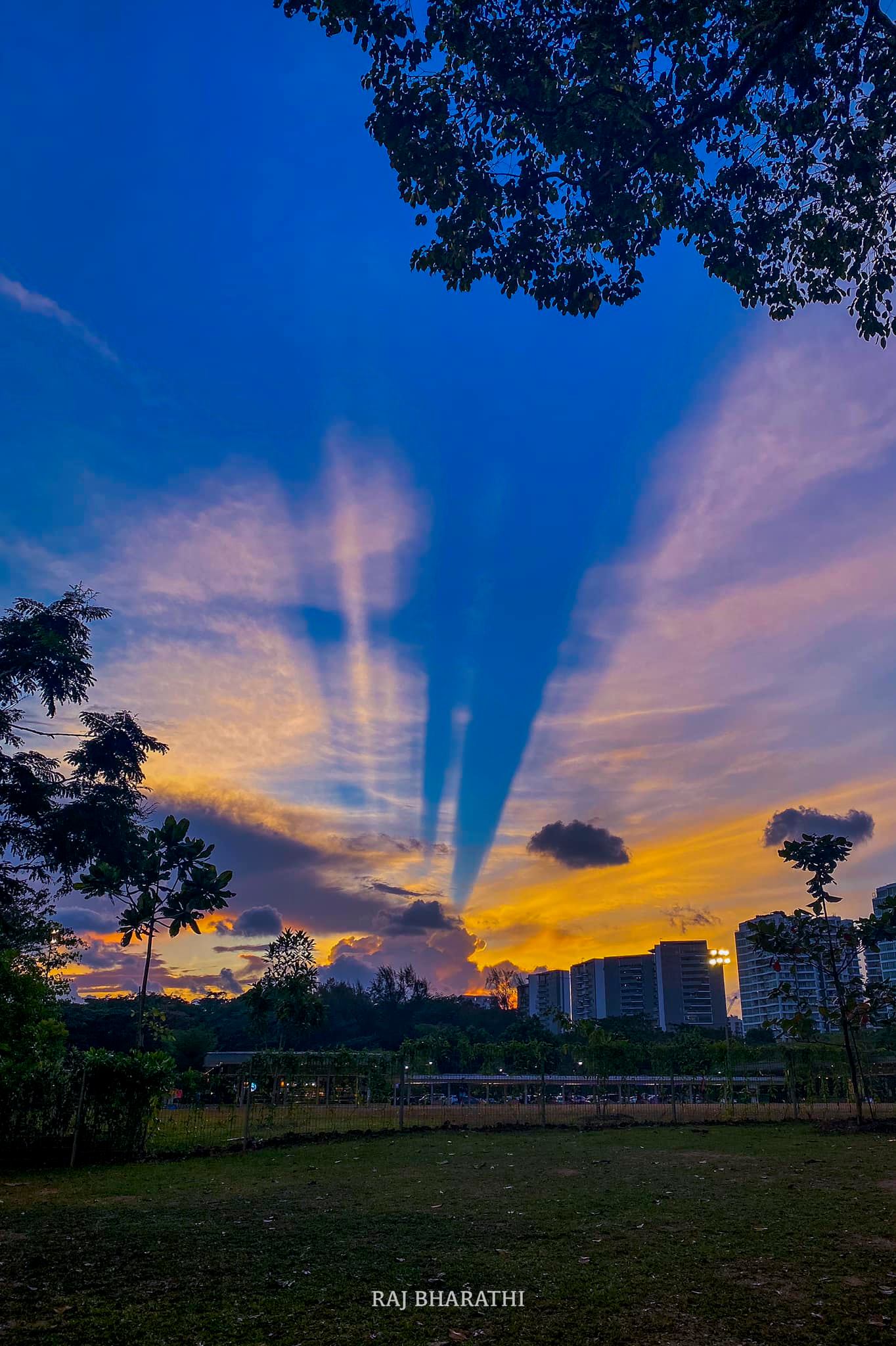 Photo by Raj Bharathi via Nature Society Singapore Facebook group.
Photo by Raj Bharathi via Nature Society Singapore Facebook group.
Stunning sunset amazed residents in Singapore on Mar. 11
Clearly Raj was not the only one who sighted the gorgeous sunset splitting up in the sky.
More nature-loving residents in Singapore shared their photos in the comment section of Raj's post:
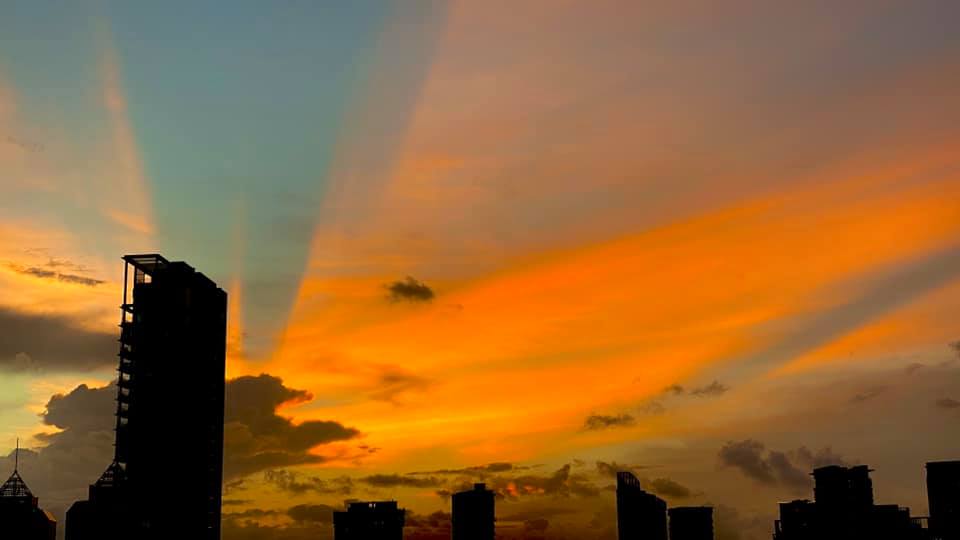 Photo by Bea Tang via Nature Society Singapore Facebook group.
Photo by Bea Tang via Nature Society Singapore Facebook group.
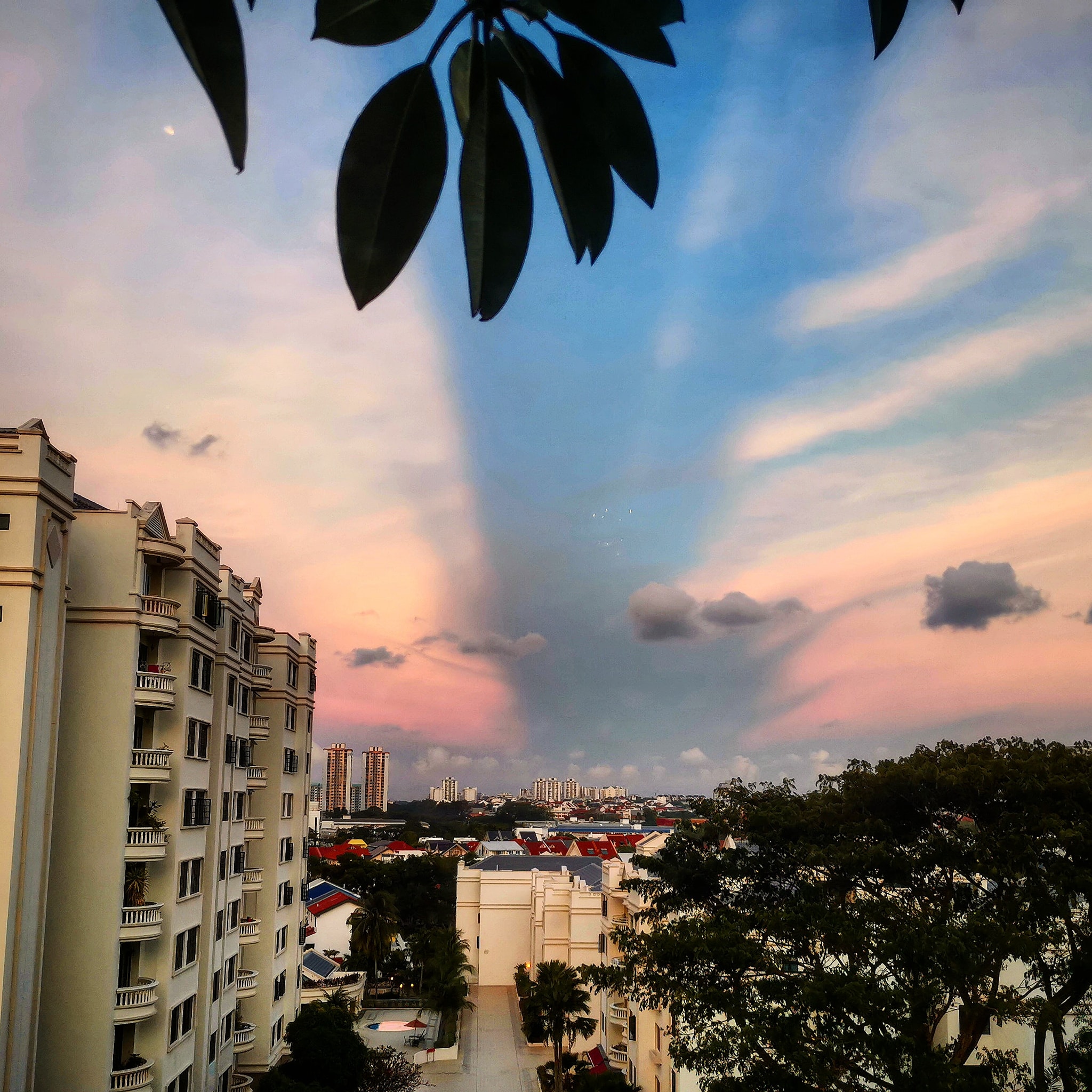 Photo by Doreen Foo via Nature Society Singapore Facebook group.
Photo by Doreen Foo via Nature Society Singapore Facebook group.
Serangoon:
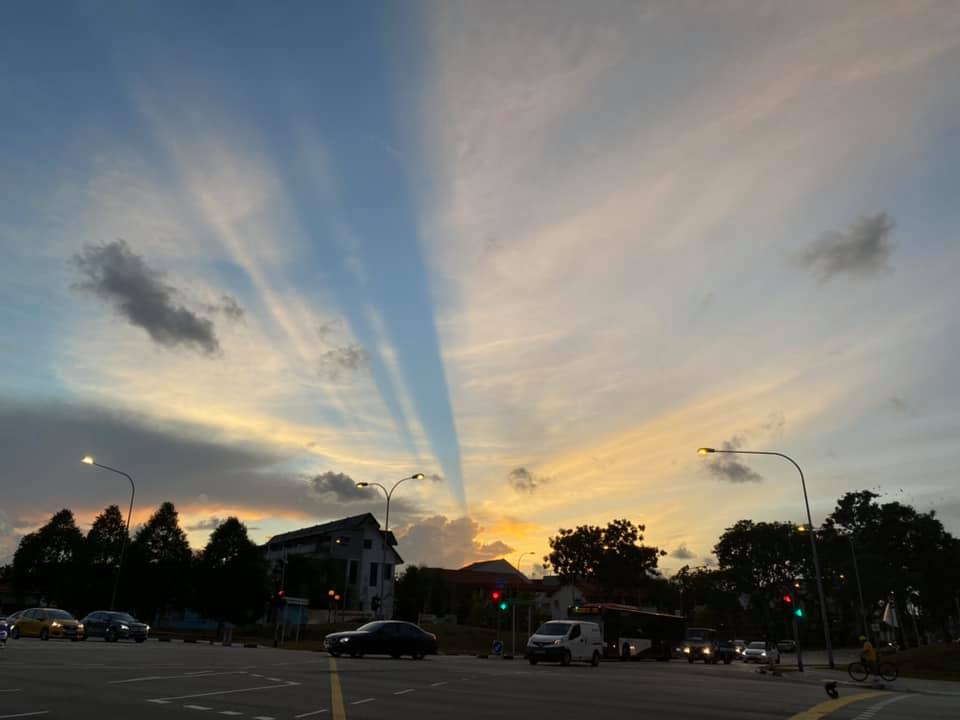 Photo by Jean Tan Huang via Nature Society Singapore Facebook group.
Photo by Jean Tan Huang via Nature Society Singapore Facebook group.
Joo Seng:
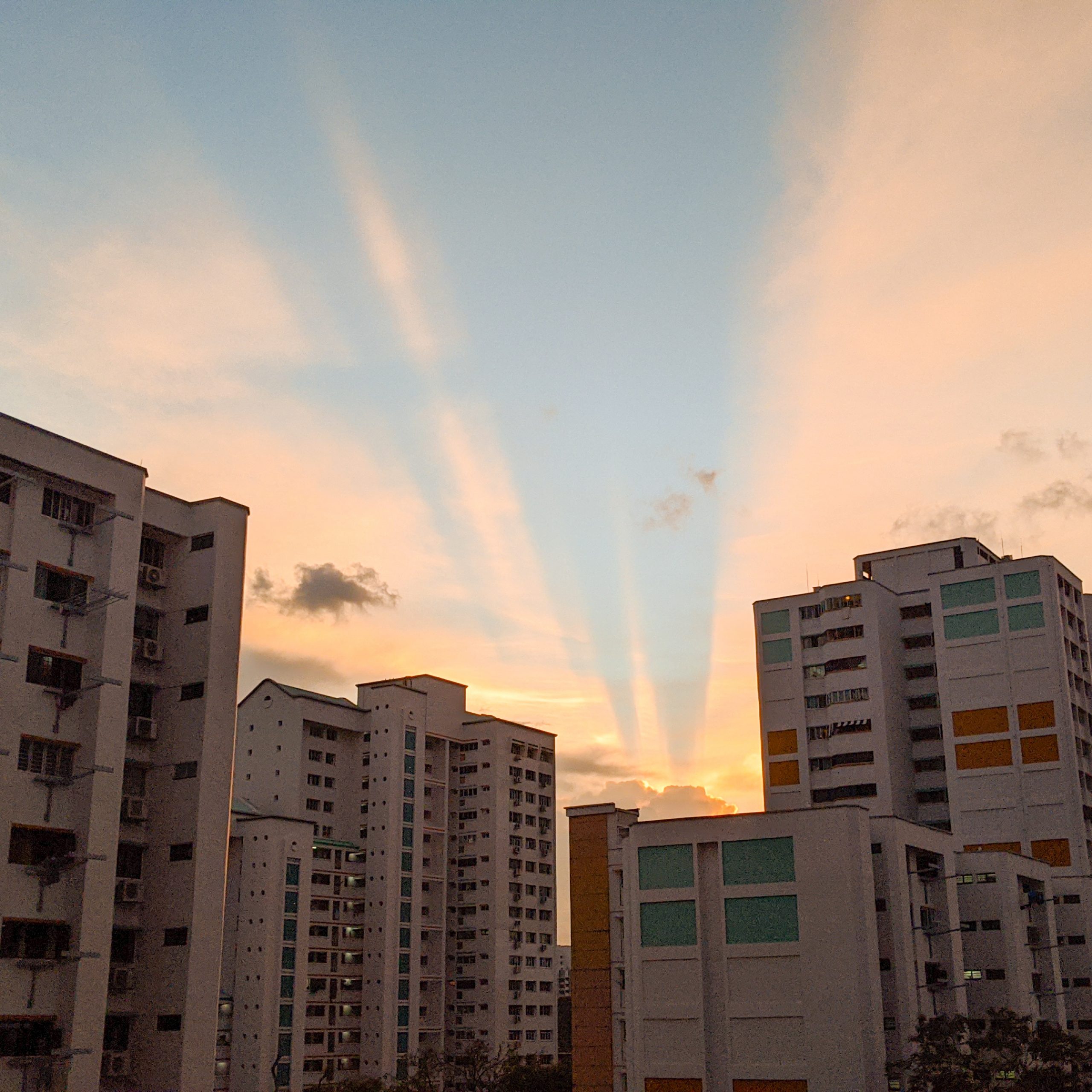 Photo by Abriel Tay.
Photo by Abriel Tay.
Boon Lay:
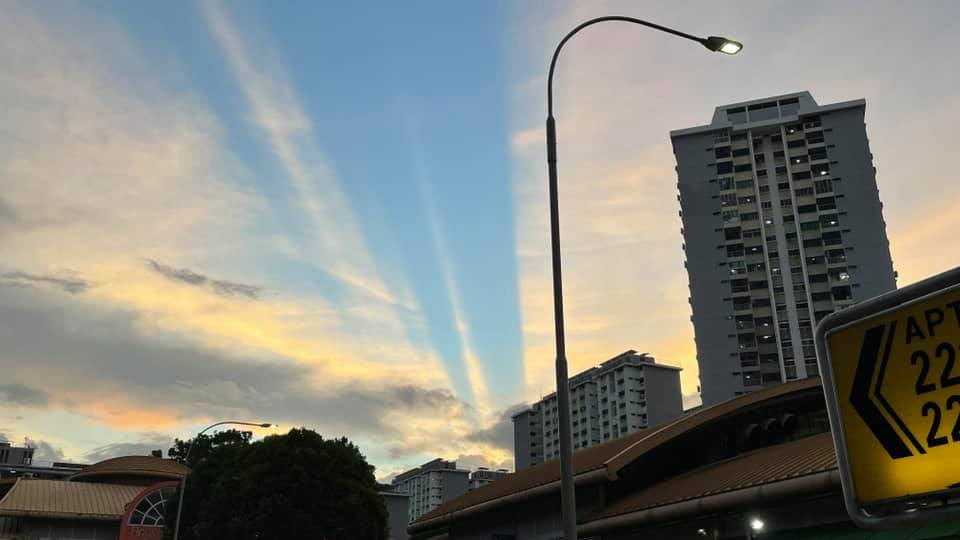 Photo by Julii Oli via Nature Society Singapore Facebook group.
Photo by Julii Oli via Nature Society Singapore Facebook group.
Sentosa:
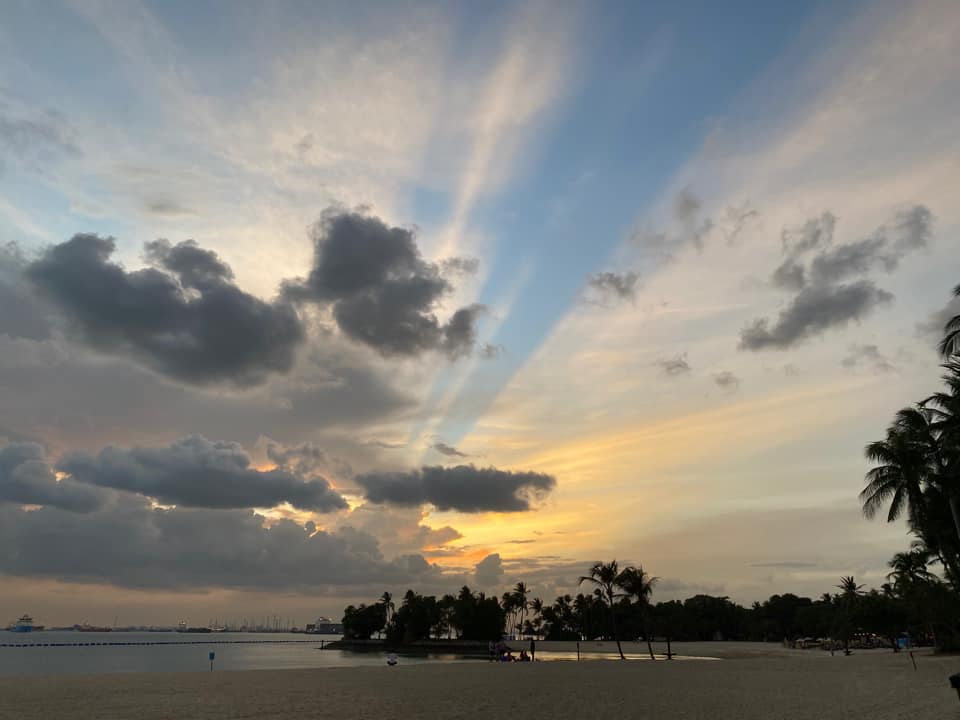 Photo by Liz Fong via Nature Society Singapore Facebook group.
Photo by Liz Fong via Nature Society Singapore Facebook group.
Seletar Hills:
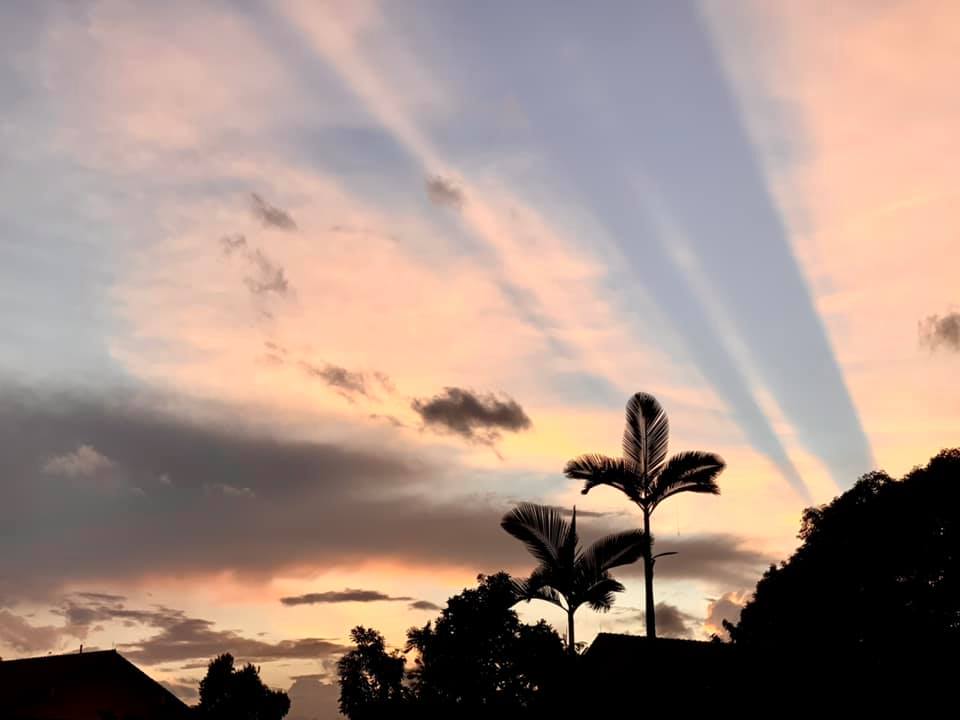 Photo by Nicole Marzola via Nature Society Singapore Facebook group.
Photo by Nicole Marzola via Nature Society Singapore Facebook group.
Like many of them, you are probably curious about this natural phenomenon.
Crepuscular rays
This sunset, featuring dramatic splits in the sky, is formed by crepuscular rays.
Crepuscular rays are sun rays streaming through the gaps of the clouds, or an obstruction such as a mountain, just after the sun has set. They are made more visible by particles, such as dust and smoke, in the air.
Crepuscular comes from the Latin word "crepusculum" which means "twilight" in English.
Why is the sky pink or orange during sunset?
As you'd notice, the sunset appears to be pinker in some areas but more orange in others. This depends on how light is being scattered.
The sunlight is made up of all the colours of the rainbow. Different light rays have different wavelengths, the bluer lights have a shorter wavelength than the redder ones.
A blue sky is when the blue rays bounce off the molecules in the air easily and are more scattered.
When the sun is nearer to the horizon (sunrise and sunset), the light rays have passed through more air to reach our eyes as compared to overhead sunlight.
The light rays nearer to the red spectrum have longer wavelengths and will pass through the air molecules to reach your eyes while the rays closer to the blue spectrum get scattered in many directions and bounced off your sight.
Another factor that can affect the sunset colours is the presence of large particles in the air such as dust or haze. which will dull the colours during sunset.
Missed the sunset yesterday? You can view more photos and videos of the spectacular sight here on Mothershiponearth's Instagram:
https://www.instagram.com/p/CMTGqVMHDeg/
Top photos by Raj Bharathi and Abriel Tay
If you like what you read, follow us on Facebook, Instagram, Twitter and Telegram to get the latest updates.
